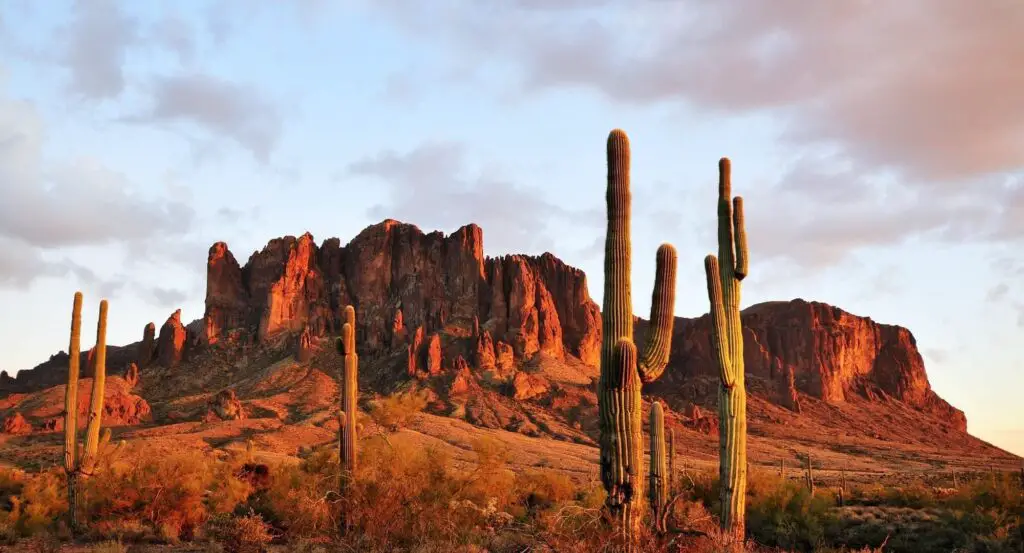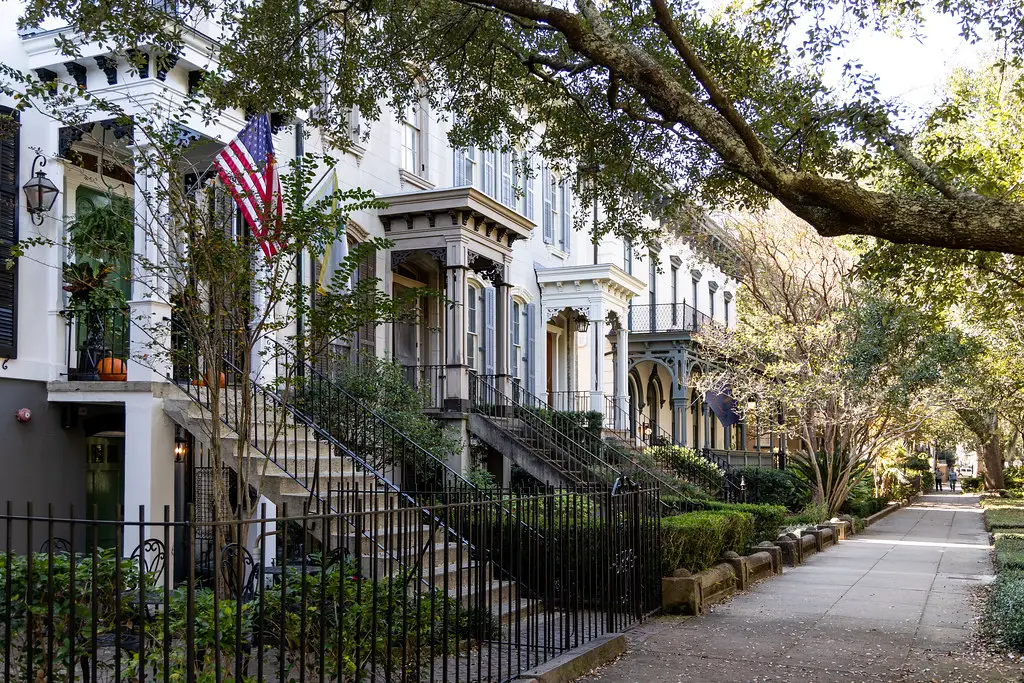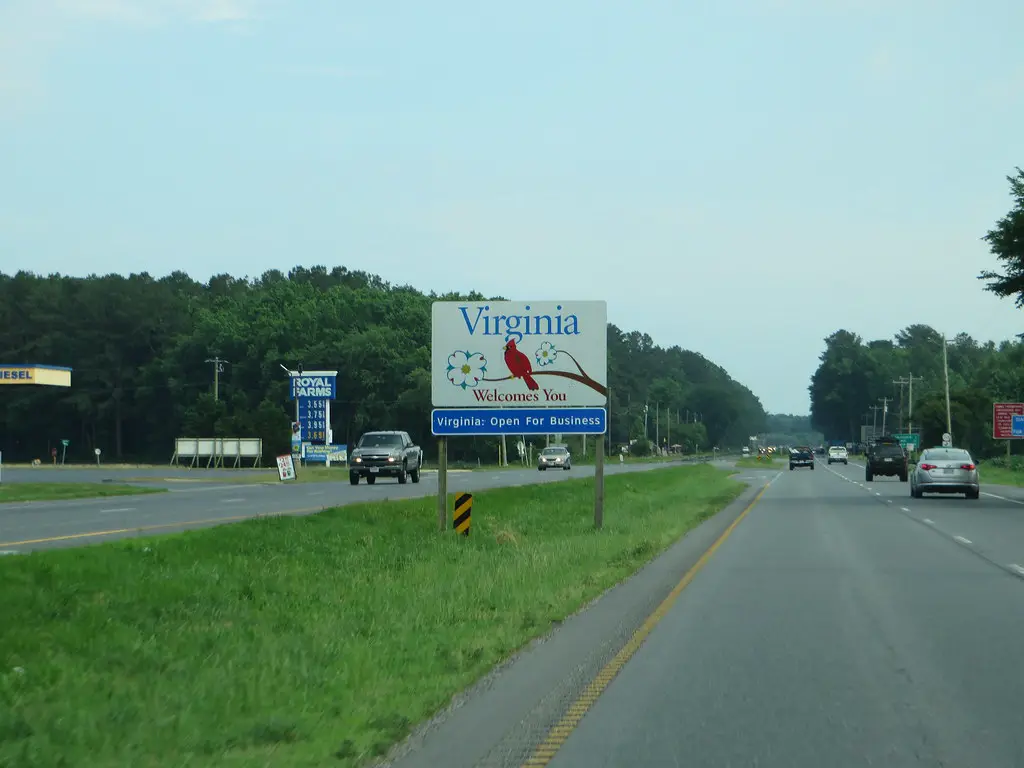Homeowners Associations (HOAs) are meant to help maintain neighborhoods and provide structure, but in some states, they have gained too much power. When HOA regulations become excessively stringent, property owners can find themselves constantly at odds with the association. These regulations may range from restrictive rules on lawn decor to limiting the type of pets allowed, and in the worst cases, HOAs can even impose hefty fines on homeowners for minor infractions. In this article, we’ll explore the 14 states where HOAs are becoming increasingly overbearing, leaving residents frustrated and sometimes powerless.
1. Nevada

Nevada is widely recognized as one of the states where HOAs exert considerable influence over homeowners’ lives. In this state, homeowners often encounter regulations that govern everything from the appearance of their homes to the types of vehicles allowed in driveways. In some cases, the rules can be so strict that homeowners may face hefty fines or even foreclosure for minor infractions. According to Nevada Current, the Las Vegas area, in particular, is known for its large number of neighborhoods governed by powerful HOA boards that often enforce these regulations without much leniency.
Furthermore, many residents in Nevada have voiced concerns over the level of control exercised by their HOA boards, arguing that these associations prioritize their own interests over the needs of homeowners. With the laws in Nevada heavily favoring HOAs, it can be difficult for homeowners to challenge these rules or to obtain clarity on why certain regulations are enforced. This lack of transparency has led to increasing frustration among residents who feel powerless in the face of these overbearing associations. As more people move to Nevada, especially in cities like Henderson and Summerlin, the number of HOA-related disputes continues to rise.
2. California

California has a reputation for its diverse and often strict HOA regulations, which can vary widely depending on the community. In many parts of the state, HOAs enforce rules that are far-reaching and sometimes considered unreasonable by homeowners. These rules might regulate everything from the color of your front door to the types of plants in your yard. As stated by The Los Angeles Times, these rules can sometimes lead to unnecessary fines for minor infractions, such as a tree branch that slightly overhangs the fence or a non-approved lawn ornament.
Moreover, homeowners in California often feel that their freedom to personalize their homes is significantly limited by these stringent HOA regulations. Many associations require homeowners to submit detailed requests before making any modifications to their property, including landscaping or home improvement projects. Residents also express frustration over the lack of communication from HOA boards, which are sometimes seen as unaccountable and opaque in their decision-making. The growing number of HOA-related complaints in regions like the Bay Area and Southern California reflects a rising dissatisfaction among homeowners who feel that their personal property rights are being infringed upon.
3. Florida

Florida’s HOA landscape is marked by heavy regulation, particularly in its large retirement communities. These communities, many of which are located in the state’s more popular areas like Miami and Orlando, are governed by HOAs that impose rigid rules on everything from home exterior design to daily activities. In some cases, residents have reported fines for seemingly trivial matters such as the use of non-approved patio furniture or leaving a garage door open for too long. A report from Consumer Reports highlights that many of these rules are enforced with little regard for the impact on homeowners, who often face severe penalties for minor violations.
What’s more, the state’s legal system tends to side with HOA boards, making it difficult for residents to challenge fines or appeal HOA decisions. Homeowners often find themselves stuck between following strict guidelines or facing punitive actions, including steep fines and in extreme cases, foreclosure. As Florida’s population continues to grow, particularly among retirees, the number of HOA-related disputes has escalated, leading to calls for changes in the way these associations operate. Many residents feel that their quality of life is being eroded by the constant interference of HOA rules.
4. Arizona

Arizona is home to many newly developed suburban neighborhoods that are governed by HOAs with strict regulations. These associations often impose rules that dictate the types of home modifications homeowners can make, including restrictions on the color of exterior paint or the type of fencing allowed. These regulations are intended to maintain uniformity in the community, but for some homeowners, they can feel restrictive and unnecessary. As reported by Arizona Republic, residents in the Phoenix metropolitan area, in particular, have voiced their frustration with the degree of control that HOAs have over their properties.
The stringent enforcement of these regulations can also lead to unexpected fines for homeowners who fail to comply with the rules, even in situations where the violations seem relatively minor. For instance, residents may face penalties for something as simple as not properly trimming a tree or leaving a garden hose out in the yard. These small issues can escalate into larger disputes, leaving homeowners feeling like they have little control over their own property. As Arizona’s housing market continues to expand, particularly in suburban developments, HOA-related complaints remain a significant concern for many residents.
5. Texas

Texas is home to many master-planned communities with powerful HOAs that have earned a reputation for overreaching. These HOAs often impose strict rules that homeowners must follow, such as prohibitions on certain types of landscaping or requirements for the specific design of homes. One of the more controversial aspects of Texas HOAs is their ability to fine homeowners for what might seem like trivial issues, such as a fence that doesn’t meet the HOA’s guidelines.
Additionally, many Texas HOAs have been criticized for lacking transparency in their decision-making processes. Homeowners may find it difficult to understand how rules are made or how penalties are determined. In some cases, residents feel as though they have little to no voice in the decisions that affect their own homes. This has led to complaints about the overreach of these associations, particularly in suburban areas around Houston and Dallas.
6. Utah

Utah’s HOA landscape is known for being particularly restrictive, with many communities enforcing rules that are considered excessive by residents. HOAs in the state have the authority to regulate everything from the color of homes to the type of landscaping used in front yards. These regulations are often seen as stifling, particularly for homeowners who prefer to express their personal style through their property.
In addition to these rules, many Utah HOAs have been accused of imposing unreasonable fines for minor violations. Homeowners may find themselves penalized for things like leaving trash cans out for an extra day or having a tree that isn’t perfectly trimmed. With so much control placed in the hands of HOA boards, residents often feel that they are being treated as tenants rather than owners of their own homes.
7. Colorado

Colorado is known for its picturesque mountain communities, but some of the state’s HOA rules can feel intrusive to homeowners. Many HOAs in Colorado impose strict regulations on the appearance of homes, particularly in higher-end developments. These rules often extend to outdoor spaces, where homeowners may be restricted in what they can plant or how they can decorate their yards.
Colorado’s HOA boards are also notorious for their arbitrary decision-making processes, with many residents reporting that rules are enforced inconsistently. Some homeowners have found themselves facing fines for issues that they were not made aware of or that seem trivial in nature. As a result, frustration with HOAs has been growing in some of the state’s suburban and mountain communities.
8. North Carolina

North Carolina has a large number of HOAs, particularly in its suburban areas, where residents may find themselves subject to highly restrictive rules. These rules can dictate everything from the color of house shutters to the size of trees allowed in yards. North Carolina’s HOAs also have the ability to impose fines for what residents consider minor offenses, like having an unapproved patio or nonconforming mailbox.
In many cases, residents feel as though they are living in a constant state of scrutiny. Homeowners often report feeling that their personal freedoms are being eroded by the controlling nature of their HOA. Many of these issues are particularly prevalent in areas around Charlotte and Raleigh, where the housing market has been booming in recent years.
9. South Carolina

South Carolina is another state where HOAs have gained notoriety for overreach. In the state’s suburban and coastal communities, homeowners are often subjected to strict rules regarding everything from landscaping to parking. For example, some HOAs ban the use of certain types of outdoor furniture or prohibit homeowners from installing certain types of solar panels.
South Carolina’s HOAs also have a reputation for being very aggressive when it comes to enforcement. Homeowners who violate these rules may face fines or even legal action. The pressure to comply with HOA regulations has caused many South Carolina residents to feel that they have little control over their own properties.
10. Georgia

Georgia has become a hotbed for HOA disputes, with many residents in suburban Atlanta and its surrounding areas reporting frustrations with overly stringent rules. In these areas, HOAs frequently impose fines for violations related to home exterior modifications, lawn maintenance, and parking. These rules can often be vague, leaving homeowners uncertain about what is and isn’t allowed.
Many Georgia residents also feel that their HOAs are making decisions without considering the input of the people who actually live in the communities. As a result, there has been growing pressure for greater oversight and regulation of HOAs in the state. Residents are calling for more transparency and accountability when it comes to the enforcement of HOA rules.
11. Virginia

Virginia has some of the most heavily regulated HOA communities in the nation. In many parts of the state, particularly in Northern Virginia, HOAs have the power to enforce strict rules regarding home appearance, landscaping, and even the types of vehicles allowed in driveways. Homeowners who fail to comply with these regulations may face steep fines or even lawsuits.
These strict regulations often lead to tension between residents and HOA boards, as many homeowners feel that they are being treated as tenants in their own homes. In some cases, residents have reported that they were fined for violating rules they were unaware of. The sense of control exerted by some Virginia HOAs has caused frustration among many homeowners.
12. Tennessee

Tennessee is home to many newer suburban developments, many of which are governed by powerful HOAs. These HOAs have the authority to regulate nearly every aspect of homeowners’ properties, from the types of trees planted to the colors of the exterior paint. Homeowners may face penalties for even the smallest infractions, such as leaving a trash bin out for an extra day.
Tennessee’s HOAs are also known for their lack of transparency, leaving residents frustrated with the decision-making process. Many homeowners feel that they have little say in the rules that are enforced in their own communities. This has led to calls for reform to ensure that HOA boards are held accountable for their actions.
13. Ohio

Ohio is another state where HOAs have gained a reputation for overreach, particularly in its suburban neighborhoods. Residents in these areas often find themselves subject to a long list of regulations, including restrictions on lawn care, fencing, and the types of outdoor decorations allowed. Ohio’s HOAs also have the power to impose fines for seemingly minor violations, such as not properly maintaining a lawn or failing to remove a garden hose from the yard.
As a result, many Ohio residents feel trapped by the constant oversight of their HOA, which can have a significant impact on their quality of life. Homeowners are also frustrated by the lack of recourse when it comes to challenging these rules. The tension between residents and their HOAs has been increasing, with many calling for reform in the state’s laws governing these associations.
14. Michigan

Michigan, like many other states, has seen an increase in HOA disputes in recent years. Homeowners in some of the state’s suburban areas are dealing with overly strict rules that govern everything from the color of their house to the type of fence they can have in their yard. Michigan’s HOAs also have a reputation for imposing excessive fines for violations, leaving homeowners feeling like they have little control over their own property.
As in many other states, the lack of transparency and accountability within Michigan’s HOAs has led to rising dissatisfaction. Many residents feel that their HOA boards make decisions without considering the input of the people they represent. This has sparked a push for reform and better regulation of HOAs in the state, as homeowners seek a more balanced and fair approach to community governance.
